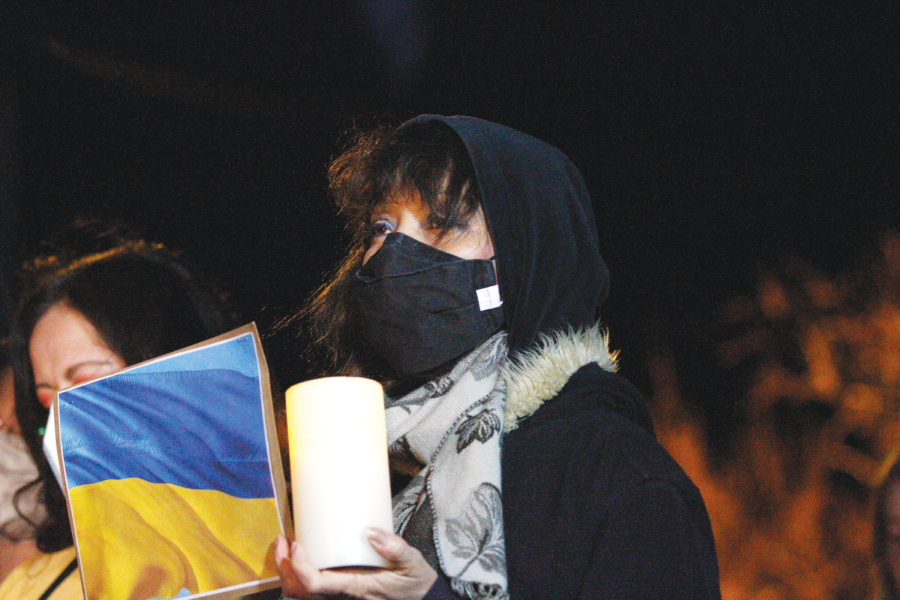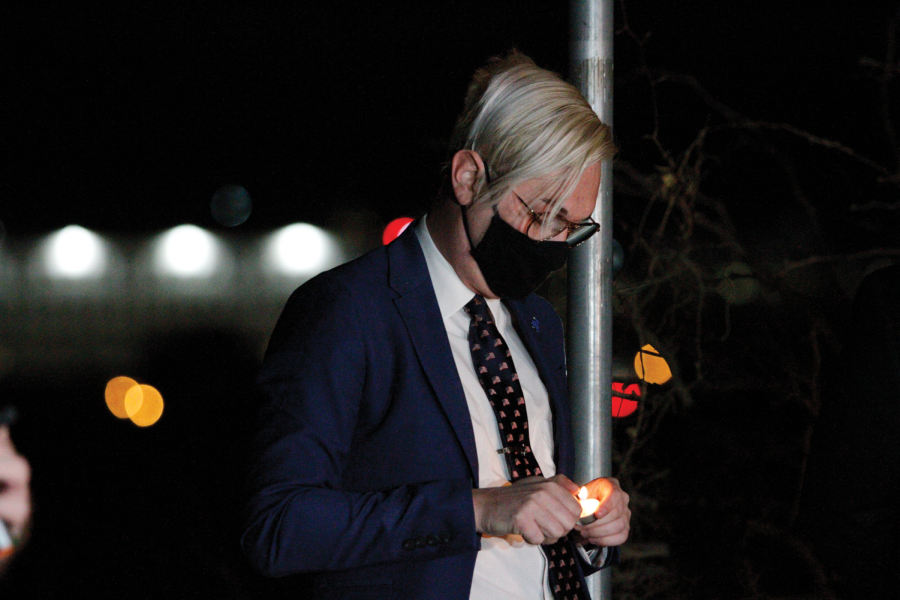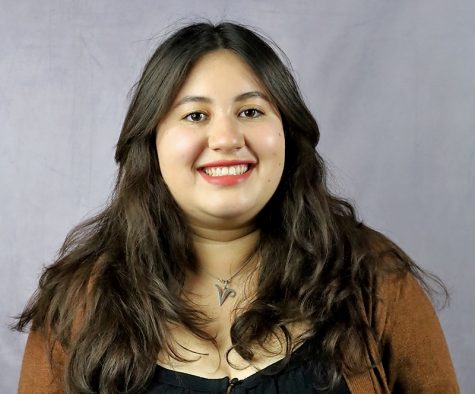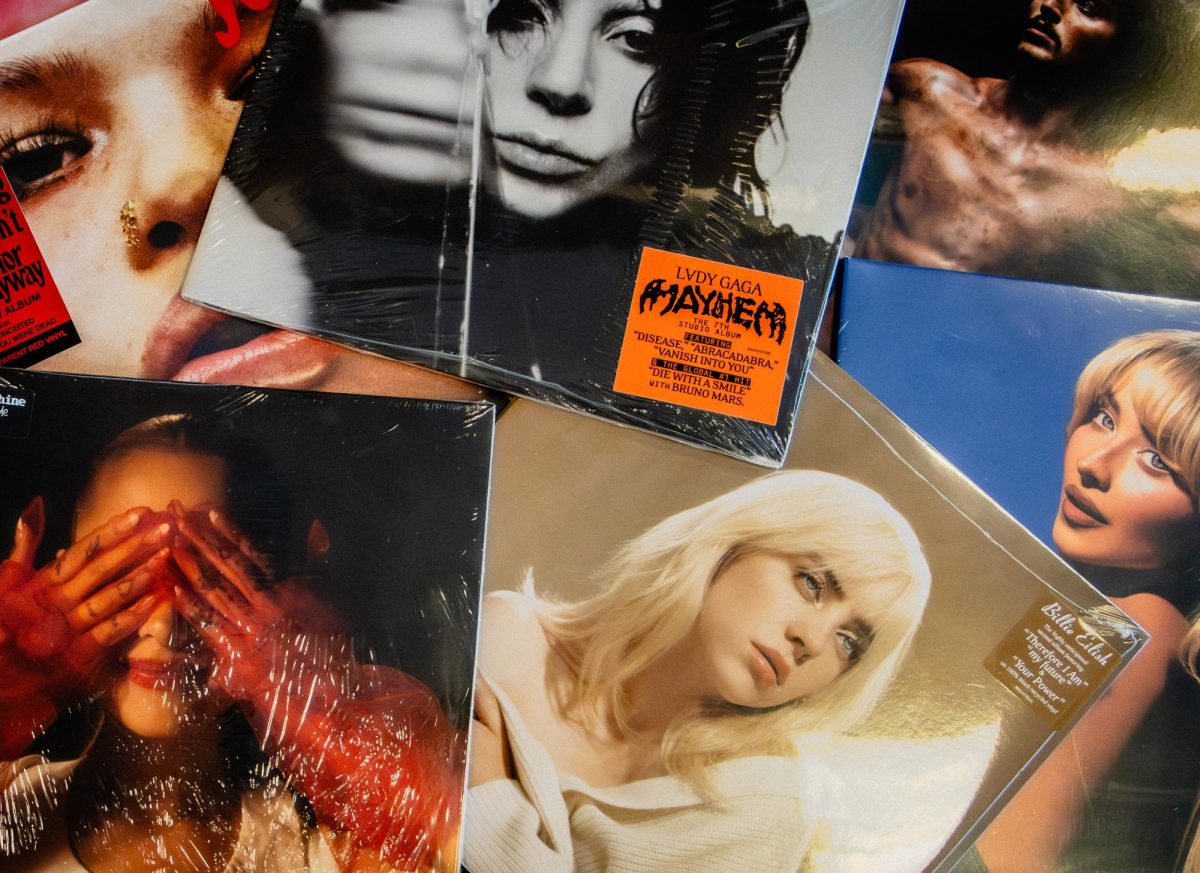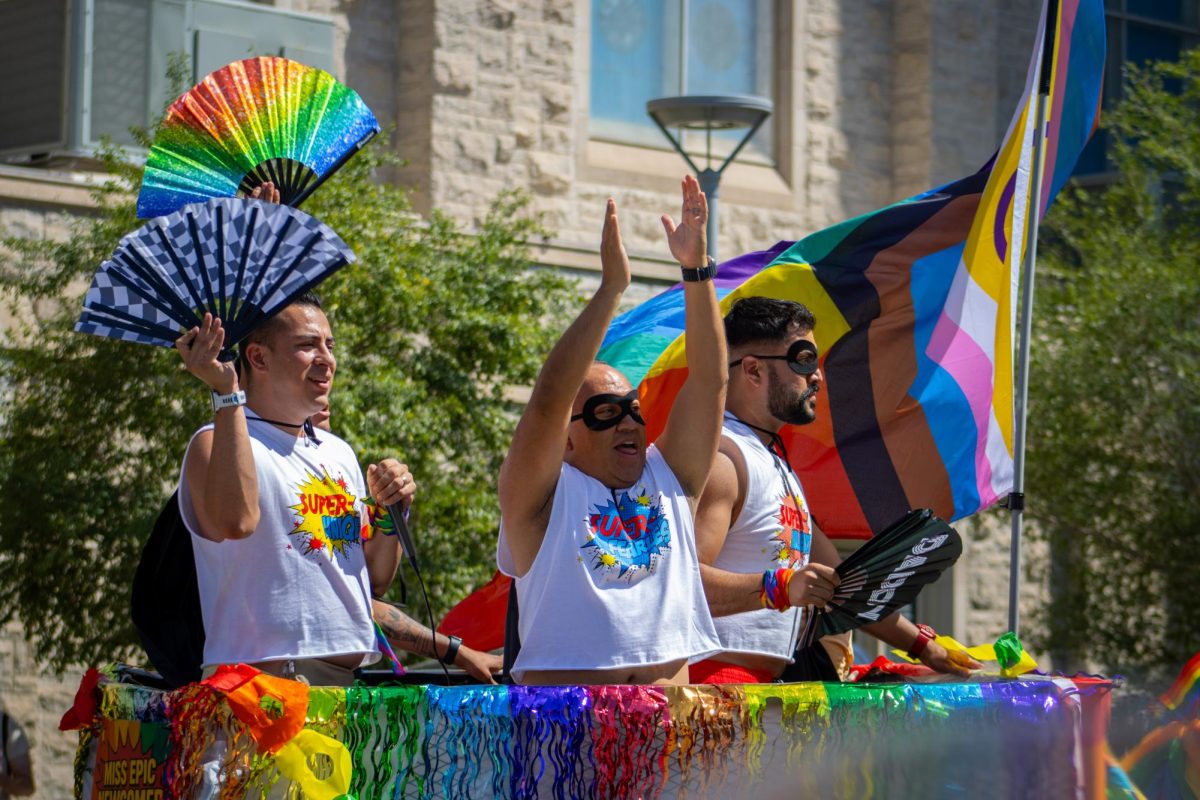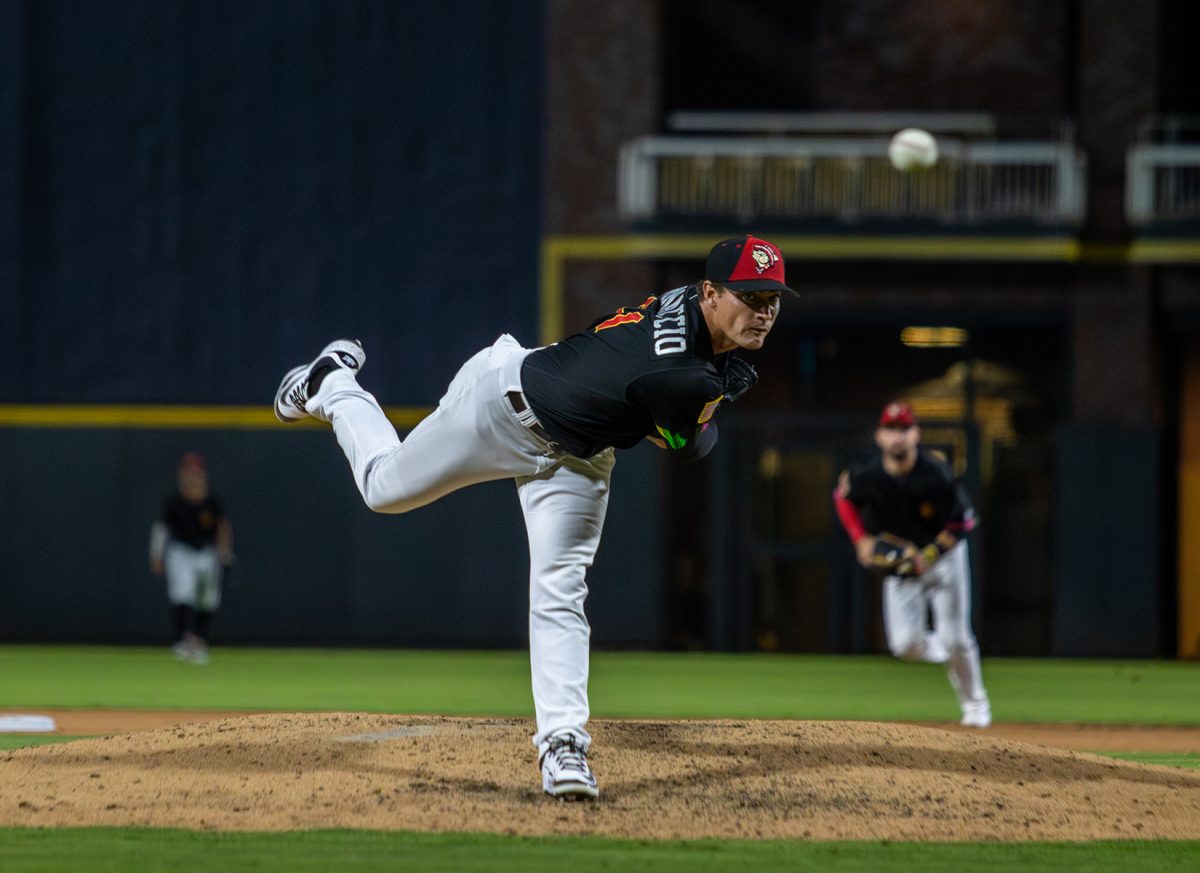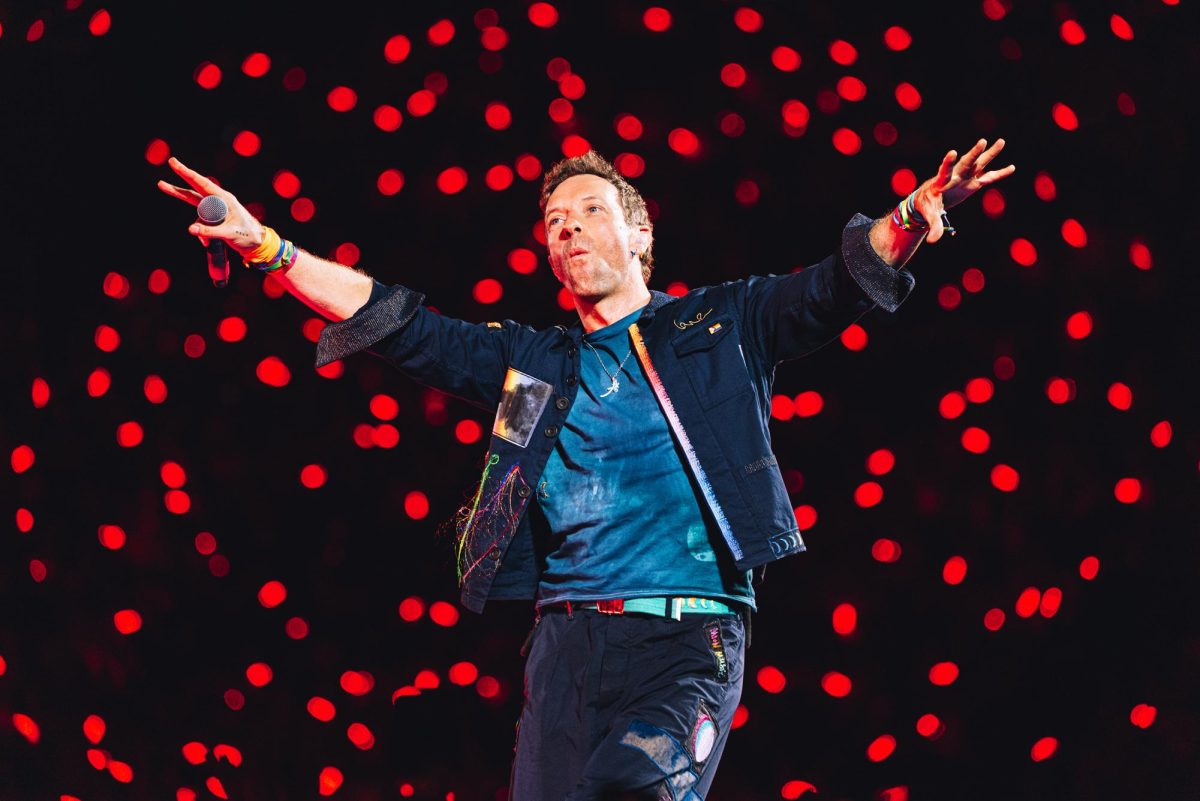After months of uncertainty, Russia invaded Ukraine early in the morning Thursday, Feb. 24, by firing a series of missiles near Kyiv and Kharkiv.
“Putin is the aggressor. Putin chose this war,” U.S. President Joe Biden said Feb. 24 via Twitter.
The invasion started minutes after Russian President Vladimir Putin made a speech on national television announcing his decision to conduct a “special military operation” and denied any intentions to occupy Ukrainian territories.
According to a CNN report, Putin also claimed to conduct a military operation to protect the people subjected to genocide by the Kyiv regime.
“Both the claims of genocide and de-Nazification as a goal for the invasion of Ukraine are just misinformation,” said Leslie Waters, Ph.D., assistant professor of history at UTEP. “But what is based on, I’m guessing is the fact that Russian speakers in Ukraine may often feel less represented by their government than Ukrainian speakers, but obviously that is not genocide.”
During his speech, Putin tried to encourage the Ukrainian military to lay down their arms and warned of consequences if any country interfered.
“Whoever tries to interfere with us, and even more so, to create threats for our country, for our people, should know that Russia’s response will be immediate and will lead you to such consequences that you have never experienced in your history,” Putin said.
The invasion comes after Russian military presence intensified across the Ukrainian border over the weeks with more than 190,000 troops.
Russia attacked from three sides and focused on targeting airports and seaports, causing thousands of families to leave the country to look for shelter or hide in underground train stations to escape the Russian assault.
“The next few days, weeks, and months will be hard on the people of Ukraine,” Biden said via Twitter. “Putin has unleashed a great pain on them. But the Ukrainian people have known 30 years of independence — and they have shown that they will not tolerate anyone who tries to take their country backward.”
Ukraine’s President Volodymyr Zelenskyy responded in a Facebook video, saying Ukraine will defend itself to protect its people and freedom.
“Putin began war against Ukraine, against the entire democratic world. He wants to destroy my country, our country, everything we’ve been building, everything we are living for,” Zelenskyy said.
Ukraine announced that all men between the ages of 18 to 60 were forbidden to leave the country and urged them to join the army to fight Russian troops.
Biden announced sanctions that will be implemented and profoundly impact Russia’s economy and financial system by targeting Russia’s biggest banks, Russian elites and their families, and implementing export controls on certain technologies.
“Russia’s economy has already faced intensified pressure in recent weeks; just today its stock market sunk to its lowest level in four and a half years, and the ruble weakened beyond its weakest daily settlement price on record – before additional sanctions were even imposed,” the Biden Administration said in a statement from the White House. “With these new stringent measures, these pressures will further accumulate and suppress Russia’s economic growth, increase its borrowing costs, raise inflation, intensify capital outflows, and erode its industrial base.”
The U.S. and its allies, who are members of NATO are implementing sanctions on Russia to suppress Russia’s economic growth.
“It’s going to actually harm the citizens as opposed to the leadership,” said Gaspare Genna, Ph.D., professor and department chair of political science at UTEP. “Which means that the leadership can use it as a tool to galvanize against the people who are setting the sanctions.”
Although the sanctions implemented by the U.S. and the European Union on Russia are long-term, UTEP Professor of Economics and Finance Thomas Fullerton, Ph.D., said these sanctions could also lead to agricultural, steel and manufactured products shortages.
“The war may interfere with the planting seasons for many crops and lead to higher global prices for wheat, corn, cabbage, barley, and peas,” said Fullerton. “Additional supply-chain disruptions may result for steel and other manufactured products. Also problematic are financial market upheavals for commodities, stocks, bonds, and currencies. The dollar has strengthened in recent days because of its status as a safe-haven currency.”
Ukraine was formerly part of the Soviet Union but became independent when it collapsed in 1991. Putin claims Ukraine is part of Russia’s history and culture and considers it a “hostile act” if Ukraine joins NATO.
“We claim, rightfully so, that Putin has violated international law and international norms in doing what he did, and he did,” said Genna. “So, therefore, for the United States to actually intervene, it would have to do so along the lines of international law.”
Ukraine is not part of NATO, and therefore the U.S. and other European countries cannot intervene in the war unless Russia attacks one of the NATO members.
“Today, I met with fellow leaders from our NATO allies and spoke with President Zelenskyy of Ukraine,” said Biden in a statement. “The United States continues to provide economic, humanitarian, and security support–and we continue to rally other countries to provide similar assistance.”
Genna believes that diplomacy was never a viable option for Russia and the west.
“The only way diplomacy would’ve worked is if the West gave in to all of his demands,” Genna said. “NATO would never accept not only Ukraine but also never accept Finland and Sweden as members of NATO. It would fully have to recognize that all eastern Europe is part of the Russian sphere influence.”
Genna also said that China could become an ally of Russia, if necessary, by providing military and financial assistance.
“He also has a shared interest, just like Putin has declared Ukraine to be either part of old Russia, or greater Russia or whatever,” Genna said. “China has had a long-standing claim on Taiwan, and they want Taiwan to be integrated diplomatically and that is what they have been trying to do so with Putin, trying to convince him to do so diplomatically.”
As of Saturday, Feb. 26, The Guardian reported 198 Ukrainians have been killed, including three children, and 1,115 Ukrainian citizens have been injured, according to Viktor Liashko, the minister of healthcare of Ukraine.
Former President Donald Trump praised Putin Feb. 24, for his “smart” actions and called Zelenskyy “brave” during a fundraiser in Florida.
“It’s dangerous because he still has a lot of pull in the Republican party,” said Genna. “According to the latest polls there is probably a good chance that the Republican party will take control in congress with a very strong pro-Trump contingency caucus, which means then that any chance of getting congressional approval for any type of military actions is probably out the window.”
According to NPR, a series of protests have occurred around the world, including in Russia, demonstrating solidarity with Ukraine and condemning Putin’s decision. Hundreds of Russian protestors have been arrested.
“I think what is really important at this moment, is that it was a completely unprovoked attack on a sovereign country,” Waters said.
Victoria Rivas is the arts and culture editor and may be reached at [email protected]; @VicRivas_18 on Twitter.

